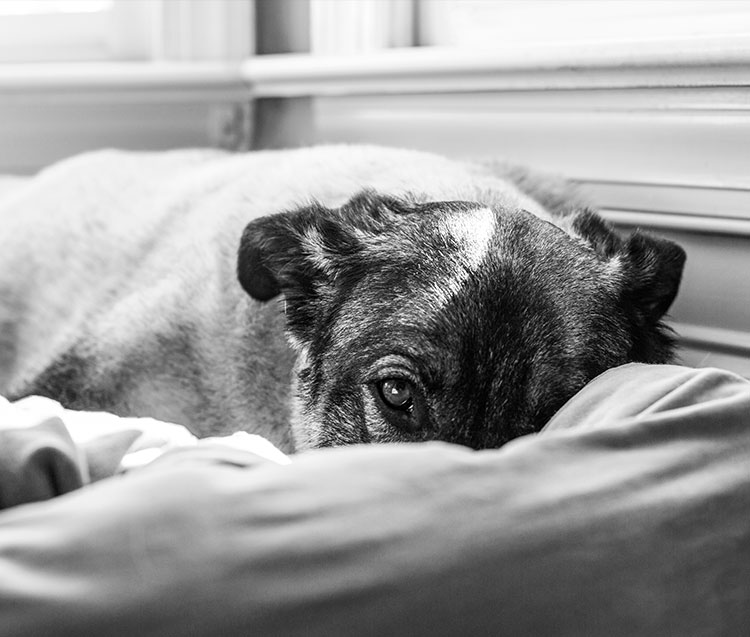
02 May Long-Term Effects of Obesity – Arthritis
As our pets become older and their energy and activity levels begin to decrease, it can be very easy for those extra kilos to start piling on. Yes—they might be more cuddly—but weight gain can have some serious implications for your pet’s health and wellbeing.
What is Osteoarthritis?
One of the most common effects of weight gain on older pets is arthritis. Osteoarthritis is the biggest cause of chronic pain in cats and dogs and it is a degenerative disease, meaning that unfortunately it gets progressively worse over time. It is caused by wear and tear on cartilage (the protective layer of the bone) which creates inflammation within the joint.
In addition to the extra weight putting pressure on joints, the adipose cells in fat can increase inflammation within the joint. This causes degeneration of the cartilage, which in turn leads to a worsening of the condition.
Signs of Osteoarthritis
- Signs that your pet may be in pain include:
- Stiffness when getting out of bed in the morning
- Limping or stiffness after a walk or exercise
- Licking or gnawing at joints or paws
- Puffy joints
- Abnormal gait
- Reluctance to walk upstairs or jump
- Reluctance to play and run
- Change in behaviour/aggression
- Postural change or muscle wastage
Adjusting Your Pet’s Diet
One of the best ways to alleviate the pressure on your pet’s joints is to reduce their caloric intake.
Consider a premium diet that is specifically tailored to senior cats or dogs. They contain fewer calories, fat and carbs, and more fibre and protein.
Reduce the number of treats that you feed your pet during the day, or play a game by concealing them in a puzzle toy or a Kong for additional mental stimulation. (Don’t forget to include these treats in your pet’s daily calorie intake.)
Make sure that other family members aren’t sneaking treats to your pet under the table! Also ensure that your pet does not have access to food left out for other pets.
Can I still exercise my senior pet?
Exercise is still important for older dogs as it keeps their heart healthy and their muscles strong in addition to keeping their weight under control.
Short, regular walks are easier on the joints than one long walk so keep up those daily visits to the park, even if it’s just for a gentle stroll and a sniff in the grass.
Stick to soft grassy areas, or if they enjoy it, try a non-weight bearing activity such as swimming.
Avoid fast exercise such as ball throwing with sudden changes in direction or speed or prolonged exercise.
Please note that if your dog is limping or in pain it’s best to check with our vets before continuing with an exercise program.
Treatment
Although there is no cure for arthritis, there are a number of treatment options available that support joints and help to keep your pet comfortable and pain-free as they age.
If you’ve noticed that your older cat or dog is putting on weight please book an appointment with one of our vets to discuss dietary changes and treatment options.


